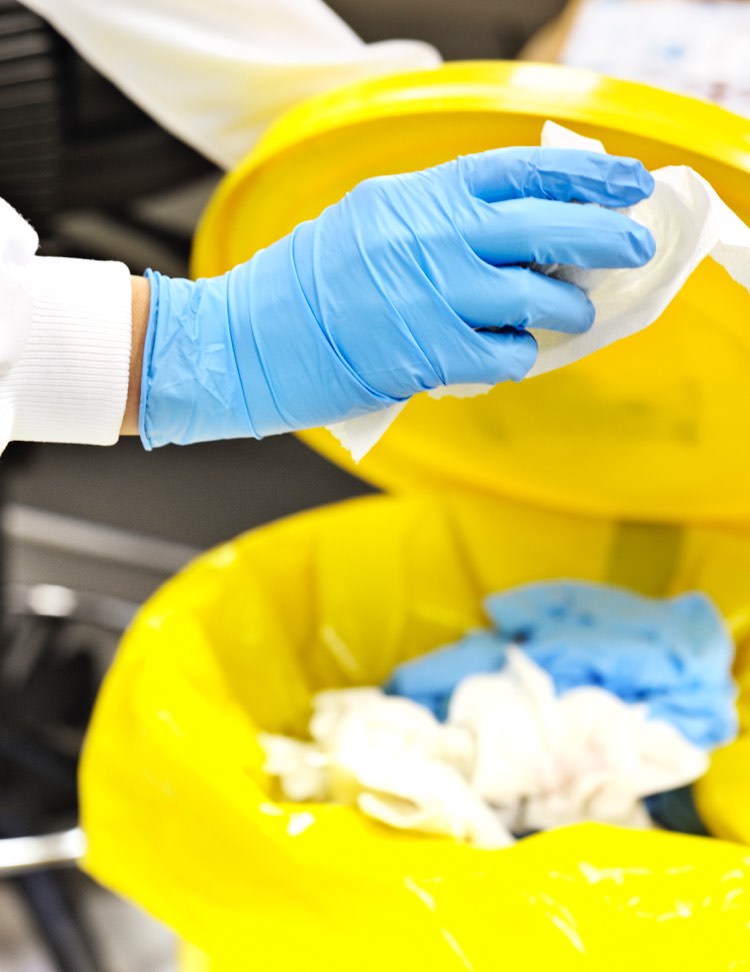Challenges:
Waste management is a matter of concern to many hospitals. Some hospitals dump wastes illegally, which leaves high risks to both population and environment; while many others operate manually in waste classification and recording, which is time-consuming, labor-intensive, and error-prone.
Solution:
RFID Tags Identifying Medical Waste
RFID tags provide precise information about the waste contained in bins, including weight, nature and origin of waste, date of transport, responsible personnel, etc. A scan of these RFID tags decode waste information and saves it in database via wireless connectivity.
Waste Treatment Steps
All time Monitoring
At each step, RFID tags automatically transmit new piece of information, such as the arrival time and location, waste type and weight, and waste management agency, back to the hospital and other shareholders for accountability.
Results:
Due to the use of RFID tags and Chainway handheld RFID readers, medical waste can be automatically identified. Illegal waste disposal can be prevented by creating traceability and accountability for hospitals and transportation and processing companies.
Waste management is a matter of concern to many hospitals. Some hospitals dump wastes illegally, which leaves high risks to both population and environment; while many others operate manually in waste classification and recording, which is time-consuming, labor-intensive, and error-prone.
Solution:
RFID Tags Identifying Medical Waste
RFID tags provide precise information about the waste contained in bins, including weight, nature and origin of waste, date of transport, responsible personnel, etc. A scan of these RFID tags decode waste information and saves it in database via wireless connectivity.
Waste Treatment Steps
- The chain of waste handling processes is divided into four major steps: collection, transport, processing and recycling or disposal.
- By using RFID and Chainway handheld RFID reader, waste processing companies can write new information into the tags to ensure the integrity, and co-ordinate and identify all types of waste to ensure potentially hazardous waste is handled in compliance with local legislation.
All time Monitoring
At each step, RFID tags automatically transmit new piece of information, such as the arrival time and location, waste type and weight, and waste management agency, back to the hospital and other shareholders for accountability.
Results:
Due to the use of RFID tags and Chainway handheld RFID readers, medical waste can be automatically identified. Illegal waste disposal can be prevented by creating traceability and accountability for hospitals and transportation and processing companies.












